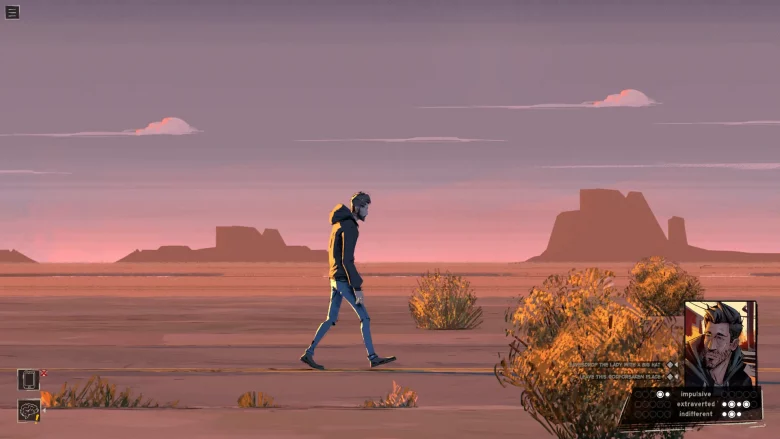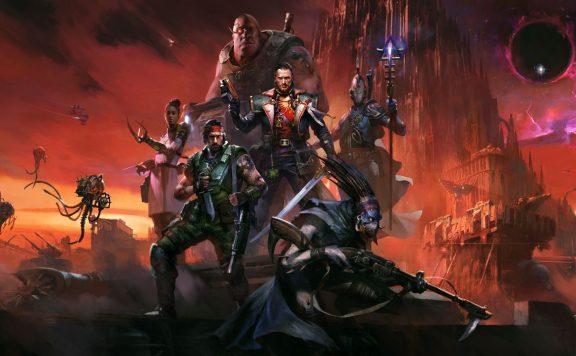Timeloops have to be one of my favourite video game mechanics after farming and horse balls that shrink in cold environments. Working through a complex situation that resets while you retain all your real world knowledge of its machinations leads to some great storytelling opportunities, and it’s created some incredible games, including true gems like The Forgotten City and Slay the Princess. Rue Valley makes a good attempt at building a mystery that you need to solve, but issues with the story and the timeloop itself hinder it.
You’re Eugene Harrow, a man on the edge, staying in a seedy motel in the arse end of Rue Valley. You’re there to attend court-mandated psychotherapy for reasons unknown, the first of many mysteries that permeate the game. It’s a strong set up, and you soon start noticing things repeating until you realise you’re stuck in a timeloop. You’ve got 47 minutes to work out what on earth is happening before an explosion fills the sky, you’re obliterated and you reawaken back in your therapy session, ready to start again.
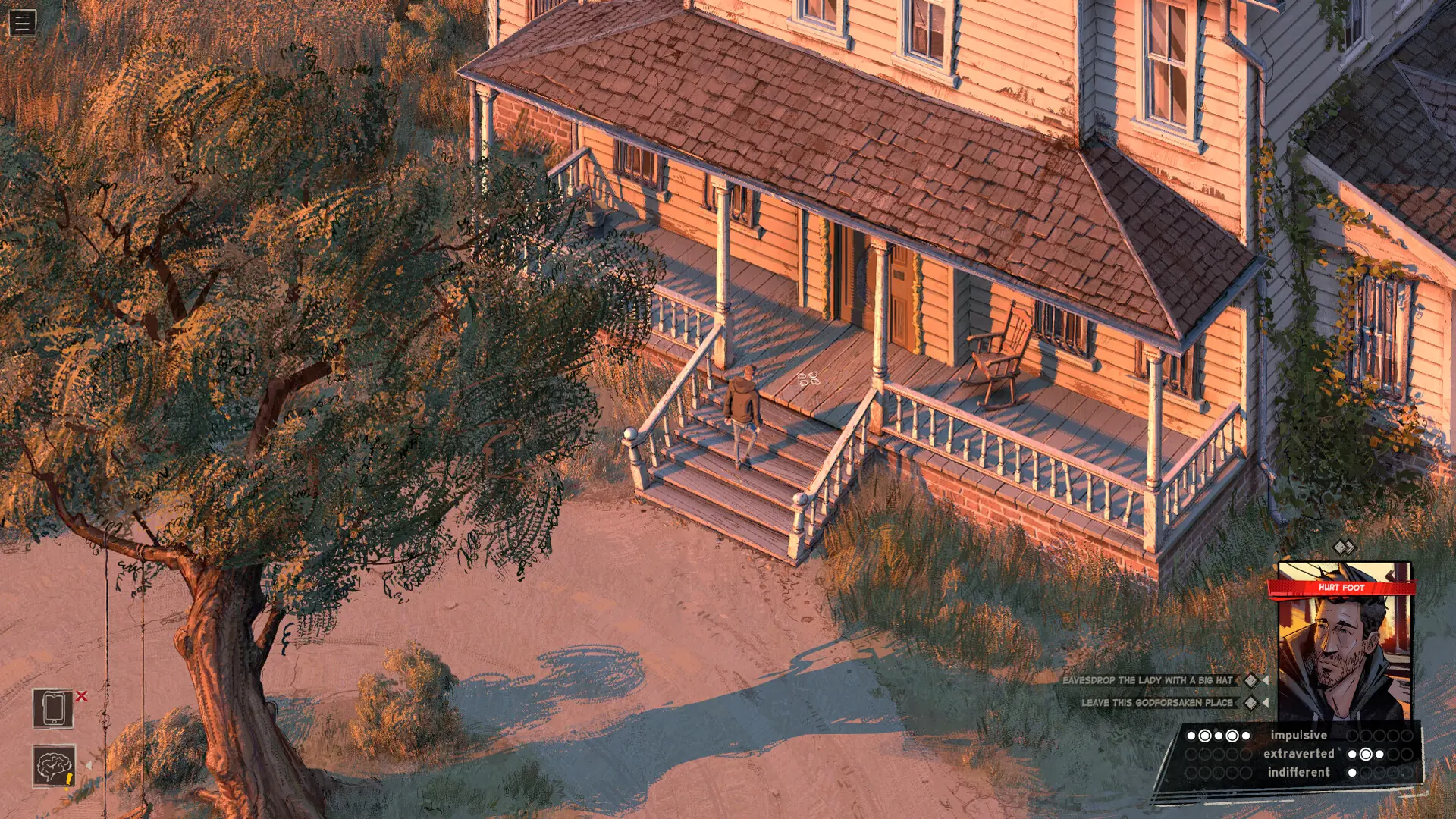
Upon starting the game you get to build out your version of Eugene, choosing his personality across 3 different spectrums, such as how decisive or emotional he is. Initially I tried to make someone that matched my own personality but you’re forced to use all the points available, suggesting Eugene isn’t supposed to be particularly well balanced. As you pour more points into a specific personality, you’ll pick up traits. I made myself more calculated in my decision making, but it came with a mandatory trait of being either paranoid or indecisive, which is a neat way of making you really think about your personality.
Once you’re let loose in Rue Valley, the game plays like a lighter version of a tabletop RPG. I’m reluctant to make the comparison, but think Disco Elysium with fewer skill checks. This lack of skill-checks surprised me, considering the level of detail you go into when building your character. Instead you’ll be speaking to people, finding clues and adding information to your mindmap.
The mindmap is worth touching on, as although it’s a great repository for all the information you learn across each loop, you don’t really interact with it beyond occasionally committing ideas into intentions, which allows you to complete them as objectives. There are willpoints to collect that help you commit more intentions but after the first few hours these seemed trivial and I didn’t need to think about them. I was hoping for something more akin to Sherlock Holmes, where you’re actively trying to make connections between clues but the game does this automatically to funnel you towards new intentions.
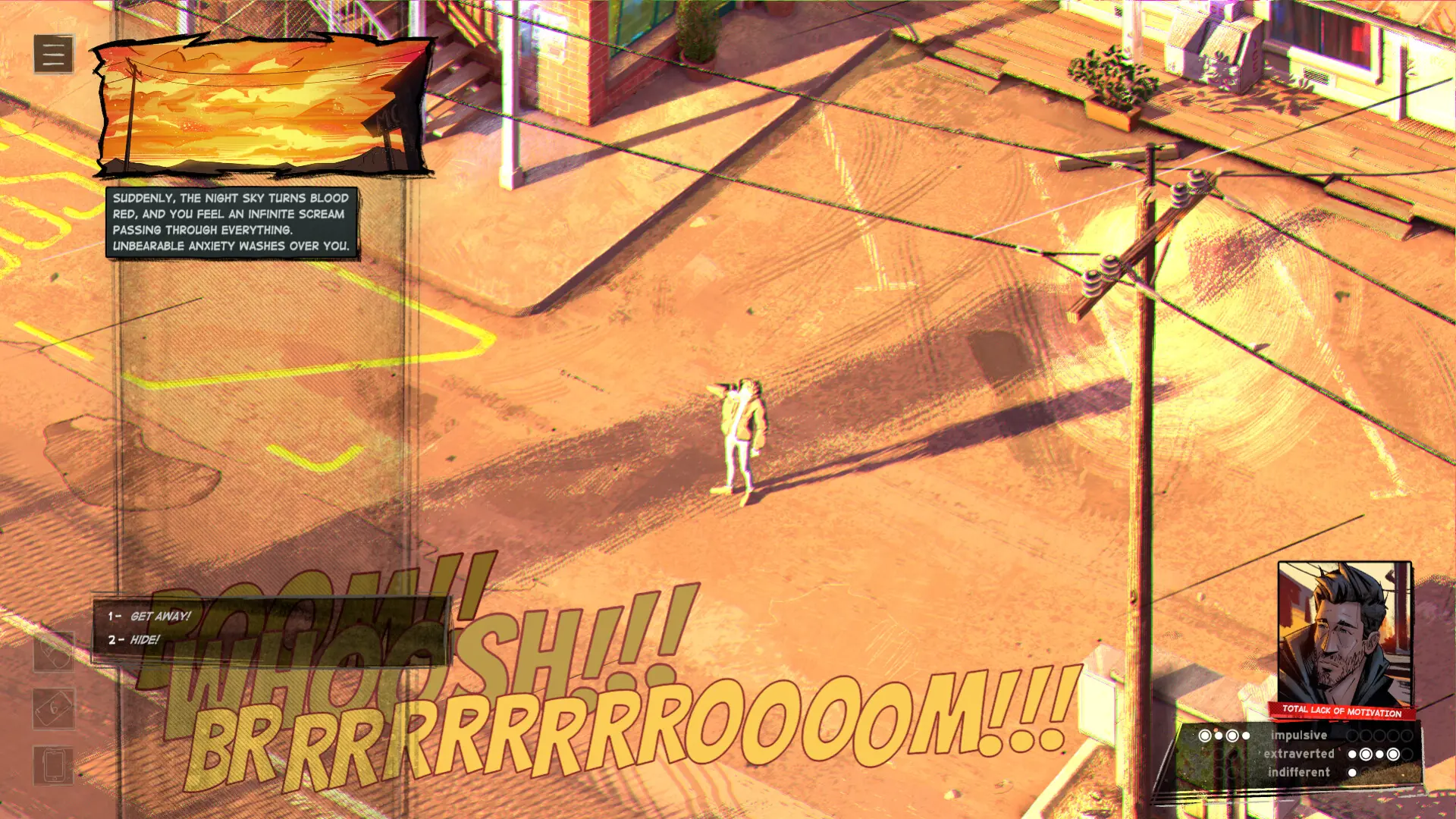
Despite only having a relatively small number of locations and characters, the game makes good use of them. There’s no wasted space in each area, with plenty of intractable elements, and characters are surprisingly deep, even those who feel like they’re just there to serve a gameplay purpose. This depth extends to the story, which quickly expands into multiple interconnecting mysteries involving family trees, secretive corporations, love and loss.
Unfortunately this complexity is both a strength and weakness – while the story is interesting and had me gripped during the first half, it feels like it grows legs and the writers lose control as it gets bigger. Between the mysteries weaving together in the back half of the game, and the extensive, prolonged conversations the game regularly throws at you, it just becomes a bit bogged down and hard to digest. It’s the same with the timeloop too, the game is reluctant to smooth out the process to make it more palatable to the player: you go through the same conversation (more or less) with your therapist every single time you restart the loop, and I must have done the loop at least 50 times during my playthrough.
There are instances like this throughout the game, and the final third has multiple sequences where you’re not really interacting with the game at all, just going through loop after loop almost as a passenger, watching events unfold. It honestly felt like I was the one trapped in a timeloop at one point, and really soured the whole experience for me. This is before even mentioning the same journeys you’ll be doing from location to location each loop, with each taking a set amount of your alloted 47 minutes. Getting to a location only to be told you’ve not got enough time to complete your objective and to come back in the next loop nearly had made me put down my controller at times.
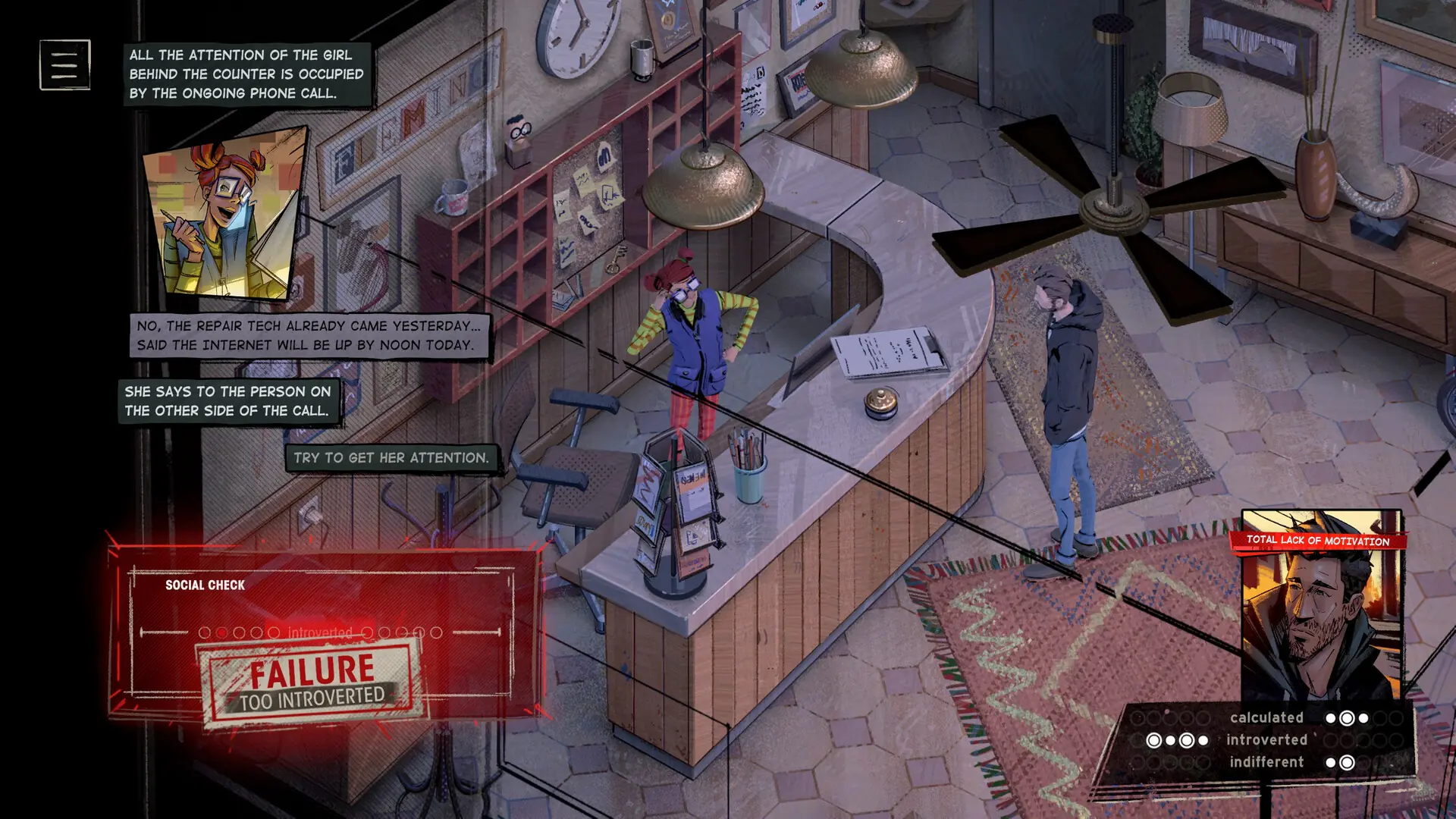
Aesthetically, Rue Valley is right up my street. The comic book style is gorgeous, with bold lines and a slightly subdued colour palette which reflects the narrative well. It’s full of little flourishes, like the page turn effect when you transition between scenes, or Eugene’s walking animation changing slightly depending if he’s tipsy, injured or just depressed. I loved the audio too, although it felt a bit too restrained in its use at times. The lonely country music fit the game perfectly, often being nothing more than a guitar with a bit of bass that felt isolating and mysterious. I just wish I’d heard more of it.
Rue Valley is a decent game that unfortunately falls far short of the games that have clearly influenced it. The constantly-expanding story becomes unwieldy, and the core timeloop mechanic can frustrate, especially during its final third. That said, it’s still a story worth experiencing, with twists and turns found in nearly every 47-minute loop, told with a lovely comic book style.
